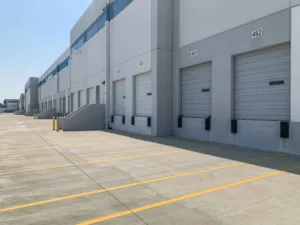
Are you ready to invest, but unsure of what’s out there and which asset class will be the best fit for you? You’re not alone. Information overload can be overwhelming, and it’s hard to know what the best investment strategies are for your unique goals. That’s why we’re here to break down your options: self-storage versus other commercial real estate investments.
We’ll cover all the details, from risk and return potential to market trends. In the end, one option is bound to stand out as the obvious winner. Ready? Let’s dive in and find out if self-storage investing is right for you!
Overview of Alternative Investment Types
Are you ready to start investing, but don’t want to be limited to the stock market? Then you should consider alternative investments! These quality investments are made by accredited investors with a high net worth and come in many different forms. The five main categories of alternatives are hedge funds, private capital, natural resources, real estate, and infrastructure—so there’s sure to be something that fits your needs.
Of these, real estate is one of the most popular alternative investments. But there are several options within the real estate asset class, and they each come with their own set of benefits and risks. Let’s look at one of these subcategories, self-storage.
Self-storage properties are attractive to investors because they tend to require less capital than other types of commercial real estate investments. They also typically have higher net operating incomes (NOI) due to the way they’re leased out. Plus, they have a low vacancy rate, which means rent payments are more reliable.
The downside to self-storage investments is that they tend to be more capital-intensive in terms of upkeep and day-to-day operations. That said, if you’re an experienced investor who’s looking for higher returns and lower risks, then self-storage could be the perfect fit. Let’s weigh the pros and cons of self-storage versus other commercial real estate investments.
Examples of alternative investments include private equity, venture capital, hedge funds, managed futures, commodities, collectibles, and real estate. Whether you’re looking for a steady income stream or a longer-term capital appreciation play—there’s likely an option for you. For example, real estate investing provides long-term opportunities for investors to build wealth and generate passive income. This type of investment allows investors to buy and hold property with the hopes of generating both short-term cash flow and long-term appreciation in value.
So if you’re considering investing in something aside from stocks and bonds and looking for a reliable source of supplemental income or long-term capital appreciation, then alternative investments like Self Storage might be the right option for you.
Risks, Returns, and Market Trends for Self-Storage Investing
When considering the risks and returns associated with investing in self-storage, there is much to consider. Self-storage investment activity has seen a significant uptick in recent market shifts, making it an attractive option for capital owners.
That’s because investing in self-storage facilities can be a profitable and stable investment opportunity with a high potential for returns. Not only that, but present market dynamics are highly favorable to self-storage investing. The self-storage industry generates $39 billion annually, offering investors the considerable potential to capitalize on a rapidly growing sector of business.
In terms of risk, the self storage industry is one of the most recession-resistant asset classes with many operators reporting stable revenue growth during pandemic times. That’s because self storage leases are short-term agreements and customers manage their occupancy very efficiently. As such, it is largely viewed as a secure and consistent asset class for long-term investors looking for steady cash flow and low volatility.
Investing in a self-storage facility offers a wide variety of benefits, such as diversified cash-flow streams through rent payments and fast–paced appreciation, tax benefits by taking advantage of depreciation and cost segregation strategies, and some long-term development opportunities. Additionally, returns on investment are often higher than traditional real estate investments, making it an attractive option for many investors.
Ultimately, investing in a self-storage facility is a great option for those looking to diversify their portfolio and enjoy a reliable, steady income stream. Self-storage facilities provide investors with a risk-averse option for creating wealth that is largely recession-proof, with significant potential for both short-term and long-term returns. With many investors turning to this asset class in recent months, now is certainly an opportune time to consider investing in self-storage.
Advantages of Investing in Self-Storage Compared to Other Commercial Real Estate Investments
Sure, there are other commercial real estates investments, like retail stores and hotels—but these investments don’t come with the same advantages as investing in self-storage.
Here’s why self-storage investing is the clear winner:
Low Operational Costs
Self-storage investments have low operational costs and high ROI — because you’re not dealing with managing tenants, major construction expenses, and long leases. In fact, self-storage facilities have operating expenses about 50% lower than other commercial property types. That means less time spent on balancing budgets and more time reaping the rewards!
Tax Benefits
Self-storage investments also come with tax benefits such as deductions for property tax, interest expense, and depreciation. So you can benefit from attractive incentives while also increasing your cash flow.
Minimal Infrastructure & Low Operational Expenses
The great thing about self-storage is that it generally involves no plumbing, minimal electricity, minimal insulation, and less vigilant management — so you don’t need to spend too much time and money on upkeep. That’s one of the reasons why self-storage investments are becoming increasingly attractive to property owners who want a more hands-off approach to their investments.
Factors to Consider Before Making the Decision to Invest in Self-Storage
When it comes to considering an investment in self-storage, there are several factors that you should consider before making the decision.
Location and Demand
Location is a key factor in determining long-term value, so you’ll want to make sure that the area where you are investing has a steady demand for self-storage units. This will help ensure that your investment is profitable over time, as people will need space for their belongings regardless of the state of the economy.
Cost of Investment
Self-storage investments have a low breakeven point because they don’t require a large up-front investment. Investment costs include land acquisition, construction, equipment, and supplies. However, it’s important to keep in mind that operating costs such as maintenance, insurance, and property taxes can add up quickly.
Potential Returns
Data supports the potential for high returns on self storage investments. When done properly, investors should be able to make decent profits over time with a minimal amount of risk compared to other real estate investments. Additionally, because the market is growing at a rapid rate—with demand still outpacing supply—investors can often get higher returns than what they’d find with traditional investments like stocks or bonds.
Real-World Examples of Successful Self-Storage Investments
Real-world examples of successful self-storage investments are plentiful and continually growing. Take Public Storage for example—they started as one man’s single self-storage facility in 1972, but now have over 2,500 locations throughout the US, Canada, and Europe. That’s real proof that self-storage investing can be a hugely successful strategy with the right amount of dedication and effort.
And it’s not just large companies like Public Storage that have seen success; everyday investors like yourself can make well executing this type of investment. Low overhead costs combined with high growth opportunities mean that your profits can quickly add up to significant sums once you come out of the initial start-up period. This is especially true when compared to other real estate asset classes—you’re likely to see a much higher return on your investment with self-storage than you would with other property types. Even in downtimes, correctly executed self-storage investments have the potential to generate more cash flow than other properties due to their lower break-even points.
So if you’re looking for an efficient and effective way to invest in commercial real estate, self storage may very well be your best bet.
Conclusion
Investing in self storage is one of the most lucrative real estate asset classes out there right now. Not only does it have lower risk, higher returns, and less volatility than other commercial real estate asset classes, but it is also a recession-resistant way to diversify your portfolio.
While there are different types of commercial real estate investments, none quite measure up to self storage units when it comes to risk, return potential, and market trends. Self storage is an investment that you can count on to produce satisfying returns over the long term and provide you with a safe and reliable source of passive income.
There are many benefits to investing in self storage, and with the right guidance and research, you can make sure your investment pays off. We hope that this post has provided you with insight into the advantages and disadvantages of investing in self storage and that it has helped you to decide if it’s the right choice for you.





